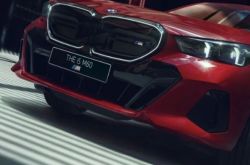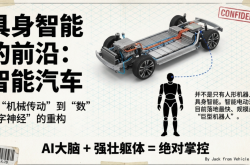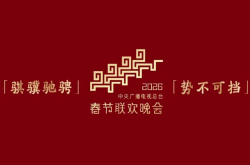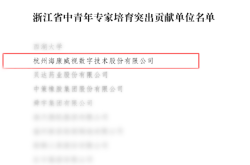Year's Most Anticipated Carmaker Arrives: A New Dream Car Joins the Ranks
![]() 09/01 2025
09/01 2025
![]() 622
622
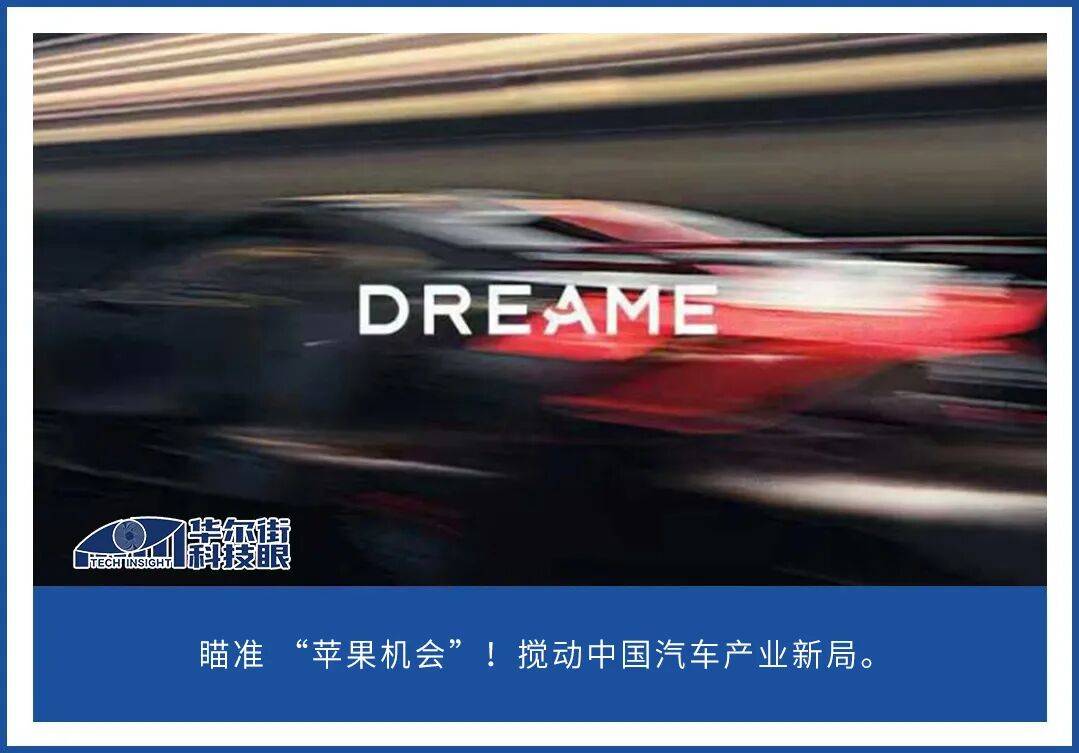
By Leon
Edited by cc Sun Congying
On August 28, a Chinese tech giant officially announced its foray into the automotive industry, vowing to "compete globally, not just domestically" and aiming to craft "the world's fastest car," sparking widespread interest and discourse. This pioneering company is Dreame Technology.
In line with global trends: In 2025, the global new energy vehicle market sustained high growth, with sales in Q2 jumping 30% year-on-year. Notably, China's new energy vehicle ownership surpassed half of the global total.
Dreame Technology's maiden new energy vehicle is a supercar, eyeing the Bugatti Veyron. Reportedly, this model will initially debut in the European market, with a projected launch in 2027.
Cross-industry ventures into automaking are not uncommon in tech and internet sectors. While some firms have tasted success, many have faced failures, underscoring the market's ruthlessness. This begs the question: Why does Dreame, deeply entrenched in smart home appliances and generalized robotics, aspire to build cars, and how will it accomplish this? We endeavor to dissect Dreame's rationale and confidence in automaking, exploring its product positioning, technological prowess, and market environment.
Dreame aims for disruptive growth via an "Apple-like opportunity"
Keywords like "world's fastest," "ultra-luxury," and "rivaling Bugatti Veyron" suggest that Dreame holds exceptionally high standards for automaking. Research reveals that certain Bugatti Veyron models can reach speeds of up to 431 km/h, positioning it as a pinnacle of ultra-luxury sports cars in the gasoline vehicle realm. Crafting an electric supercar represents an "Apple-like opportunity" that Dreame identified after extensive market observation.
What constitutes an "Apple-like opportunity"? In 2004, Apple's founder Steve Jobs foresaw the immense potential of the smartphone market. After three years of R&D, Apple collaborated with Corning Inc. to overcome the "Gorilla Glass" technology, enabling multi-touch, which revolutionized the poor experience of resistive touch on electronic devices, effectively "reinventing" the mobile phone.
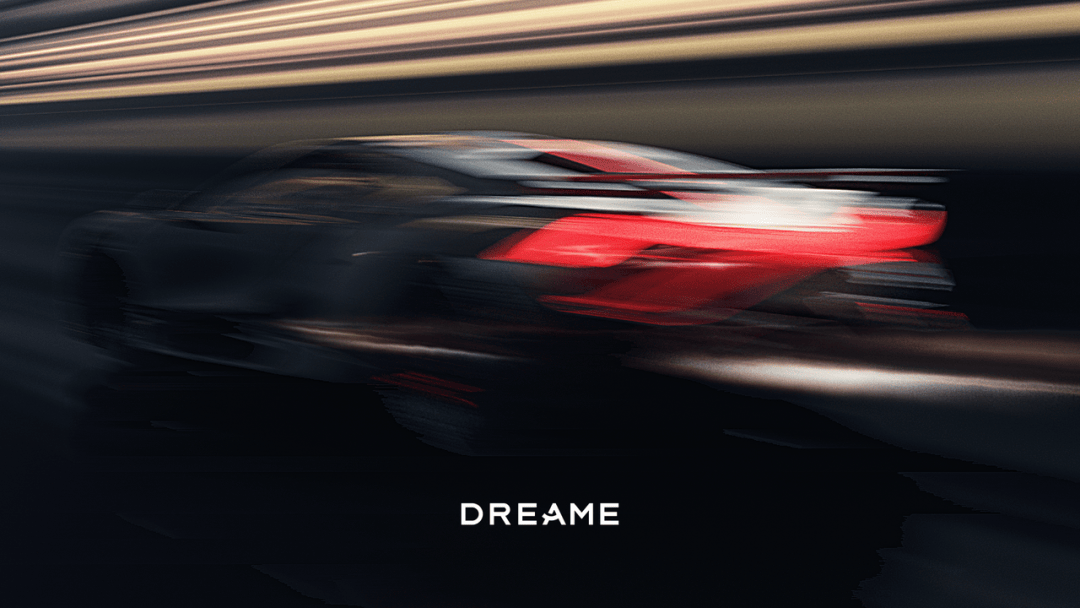
In essence, grasping a nascent market opportunity and elevating user experience through revolutionary technology epitomizes the "Apple opportunity" or the "iPhone moment," applicable across markets. In the new energy vehicle landscape, this opportunity might reside in electric luxury sports cars.
Unlike the gasoline vehicle market, most current new energy vehicle models cater to the mid-range and low-end segments, with few genuinely mass-produced ultra-high-end luxury models. This vast market gap and potential present Dreame with the prospect of "leapfrogging development." Indeed, Dreame's products have always been high-end, appealing to high-net-worth individuals, whose user base significantly overlaps with the luxury car market, underpinning Dreame's confidence in automaking.
However, confidence alone is insufficient; solid technological prowess forms the bedrock of a tech company. The linchpin technology driving electric vehicles is the high-speed motor, and Dreame boasts deep expertise in motors, robotics, AI algorithms, and more, affording it inherent advantages in automaking.
Technological supremacy underpins Dreame's automaking endeavors
Dreame is a company imbued with technological DNA, with its founding team deeply entrenched in motors and generalized robotics. Since its inception in 2017, Dreame has targeted the intelligent cleaning space, continuously expanding its footprint and garnering recognition from over 30 million users across 100+ countries and regions worldwide, thanks to its outstanding performance and premium user experience.
Technologically, Dreame has breached barriers through independent R&D, elevating motor speed from the international norm of 125,000 rpm to 160,000 rpm. In April 2025, Dreame announced the mass production of the world's first 200,000 rpm motor, setting a benchmark for China's high-end manufacturing in precision electromechanical technology.
As of June 30, 2025, Dreame Technology had filed a total of 6,379 patents globally and obtained 3,155 authorized patents. On the National Intellectual Property Administration's website, Dreame has applied for numerous automotive-related technology patents, encompassing automotive shock absorption, thermal management systems, and automotive-bionic robots. Notably, Dreame has recruited elites from various traditional automotive industry domains, including vehicle development, manufacturing, and quality control, to form a nearly 1,000-strong automotive R&D team. This team has achieved breakthroughs in motors, AI interaction, and intelligent cockpits, continually expanding its technological scope.
Automaking is a collective effort, requiring the support of a comprehensive industrial chain. Currently, China boasts the most comprehensive and mature new energy vehicle industrial chain globally. Backed by new energy supply chain clusters in places like Lingang, Shanghai, and Suzhou, coupled with long-standing cooperative relationships with top industry suppliers, Dreame enjoys reliable supply chain support for key components such as motors, batteries, and autonomous driving systems. This development pattern aligns seamlessly with Michael Porter's theory of national competitive advantage.
Porter posits that an industry's competitiveness hinges not just on itself but also on the development levels of upstream supplier industries (supporting industries) and downstream related industries (related industries). The strengths of these "related and supporting industries" reverberate back to the core industry through "synergistic effects," "technology spillovers," "cost reductions," and more, fostering an "industry cluster advantage."
In essence, Dreame's automaking endeavors perfectly align with the "Diamond Model," wherein the core industry's advantage equals its intrinsic capabilities plus the supporting capabilities of related industries.
Avoiding domestic competition, Dreame cars will debut overseas first
If self-developed technological accumulation and China's robust supply chain underpin Dreame's automaking aspirations, market channels constitute the final piece of the puzzle.
The domestic new energy vehicle market's "competition" is well-documented. Despite interventions, opportunities still lag behind players, necessitating time for gradual resolution. Amidst this scenario, Dreame has opted for a "go overseas first, avoid domestic competition" strategy to forge more differentiated value.
Data supports Dreame's strategy. According to research firm RHO Motion, global electric vehicle sales totaled 10.7 million in the first seven months of 2025, with approximately 6.5 million sold in the Chinese market, ranking first globally. Europe, with a scale of around 2.3 million units and a 30% year-on-year increase, emerged as the second-largest market, promising robust prospects.
Another BCG report reveals a global surge in high-net-worth and ultra-high-net-worth individuals, gradually piquing their interest in electric vehicles. Notably, the European market's sustained demand for electrification and emphasis on luxury brands offer automakers a prime opportunity to deeply penetrate the market.
Currently, Dreame's overseas sales channels span over 100 countries and regions, encompassing over 6,000 offline outlets, constituting comprehensive global market coverage. Importantly, Dreame's channels transcend mere "sales outlets," serving as "high-end brand touchpoints" cultivated over years of operation, seamlessly aligning with luxury electric vehicles' attributes. This underscores Dreame's mastery of high-end user needs and brand communication logic, enabling seamless transfer to the automotive sector, swiftly reaching the target audience.
Backed by self-developed technological prowess and entering the new energy vehicle market through the "Chinese supply chain + global high-end channels" model, Dreame has injected fresh imagination into the industry, leaving global car enthusiasts eagerly anticipating this ultra-luxury electric vehicle's arrival. On a broader scale, this represents an opportunity for China's new energy vehicles and even China's smart manufacturing to once again spearhead global industry development.
"I aspire to build a global top-tier technology company that serves millions of households, leveraging technology to liberate people's hands and empower them to create more," Yu Hao, the founder of Dreame Technology, once articulated his vision for Dreame. Automaking embodies not just the value of "MOTOR+X" but also a decisive step towards realizing Dreame's vision.
Lastly, attached is Dreame's automaking declaration.


